William Tolliver Tranquility Estate Certified Lithograph
Status: In Stock Available | Condition: New | Edition:Limited Edition | Edition Size: 650 S/N | Dim:24 x 30 | William Tolliver| Item #: tranquility
Price: $ 475.00 USD..
4/5/2025 $158.33 1st payment
5/5/2025 $158.33 2nd payment
6/4/2025 $158.33 3rd & final payment
payments are automatically deducted from your credit card.
William Tolliver Tranquility Estate Certified Lithograph is eligible for 3 equal layaway payments in store, with a credit card of $158.33 made every 30 days over a period of three months. US & Canada orders only.
Blending contemporary impressionism with bold color compositions, expressive figurative art comes to life through rhythmic brushwork and deep cultural themes. Each painting captures movement and emotion, using richly textured layers to tell powerful visual narratives. From vibrant jazz paintings to soulful artistic expressions, this modern impressionist style infuses abstract realism with storytelling, creating a dynamic connection between subject and viewer. African American fine art finds a voice in these compositions, celebrating cultural heritage through striking forms and energetic colors. Whether depicting musicians, daily life, or profound moments of expression, these works elevate fine art with a distinctive balance of structure and spontaneity, leaving a lasting impression through their artistic depth.
As an option you may also pay for William Tolliver Tranquility Estate Certified Lithograph using Paypal or with your Amazon Account(*select items). Please note that all orders must be delivered to a physical address verified by Paypal or Amazon.
Tranquility - tranquility
NOTES: Each piece will be accompanied by a Certificate of Authenticity stating that it is
certified by the Estate of William Tolliver. The certificate will be signed by DeAnna
Tolliver, an Authorized Representative of the Estate of William Tolliver.
These prints are not in addition to the limited editions in the series.
Each Certificate will have a seal placed on it stating that it is from the estate.
In addition to the Certificate of Authenticity, your artwork will have A
stamped signature of the artist placed on it..
Tranquility Estate Certified Lithograph by William Tolliver is signed by the artist and comes with a certificate of authenticity.
image Copyright © 2025 by William Tolliver

Gift Card Purchase
E-Gift Cards from The Collection Shop are the perfect way to gift art enthusiasts. Click below for more details!
William Tolliver bio
1951-2000 - Tolliver spent more than 30 of his 48 years perfecting his skill as a painter. Today, William Tolliver's art is collected worldwide. Tolliver's style freely combines the color of Chagall with the solid compositional principles of Cezanne and the mood and forms of Modigliani and Picasso. Tolliver's words of wisdom for the young artist were, "I would urge an art student to go to school and learn the fundamentals, because to know the fundamentals is to know the technical aspects of blending colors."
In an age when the rules of art had either been abandoned in favor of an anti-formalist attitude or had been institutionalized in academic study, William Tolliver emerged as a brilliant self-taught artist -a Mississippi-born Renaissance man whose creative intelligence combines the study of formal structure with an innate sense of human observation. Far from the marketplace of the New York City art world, Tolliver arose during the mid-1980 s a brilliant regional talent, an individual impelled by a desire to capture the landscapes and peoples of his native deep South. Whether dealing with everyday workers or back-alley jazzmen, he conveys a universal message through sconces of the common human experience.
While plaintive in mood, Tolliver s works evoke compassion with an underlying sense of expressive emotion. "I could draw on a lot of sad and depressing things from my life, but I d rather emphasize the positive." An artist of insight and natural ability, Tolliver is a deliverer of an artist message imbued with unique expressions and spiritual enlistment.
Tolliver was born in Vicksburg, Mississippi. Although his mother worked in the cotton fields by day, she found time to rear and help educate 14 children. To stimulate their interest in learning, she often challenged William and his older brother to drawing contests. Discovering William s talent, she borrowed art books from the library that exposed her son to the works of the European masters. His astute observation led him to study subjects from books, black-and-white photographs, nature, comics, and family members who posed as models.
Since the local public schools did not have an art curriculum, Tolliver continued his course of self-study. From inexpensive dime-store watercolor sets purchased with money earned by mowing lawns, Tolliver learned to mix and blend colors by using a paint-by-number kit. Using this system he experimented with mixing color and skin tones and by the age eight was able to create academically correct paintings.
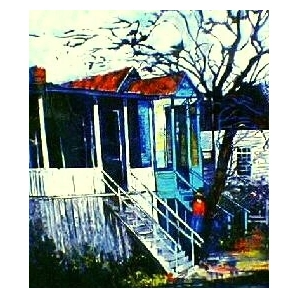
William Tolliver House On Pearl Street Estate Certified Serigraph - house
Price: $3,750.00
Layaway with 3 pymts of $1,250.00
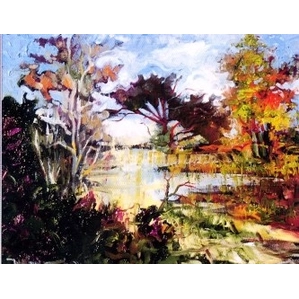
William Tolliver Tranquility Artist Signed Lithograph - tranquilityAS
Price: $950.00
Layaway with 3 pymts of $316.67
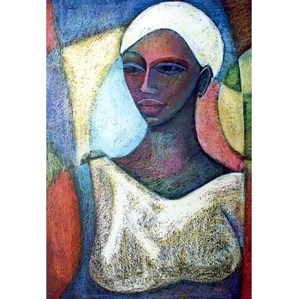
William Tolliver Adela Artist Proof - WTADELLAAP
..Layaway with 3 pymts of $0.00
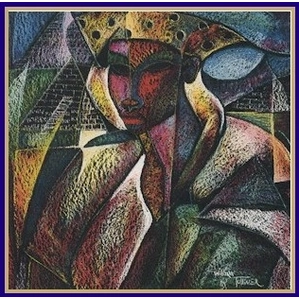
William Tolliver Egypt Limited Edition Artist Signed - WTEGYPT
Price: $1,025.00
Layaway with 3 pymts of $341.67
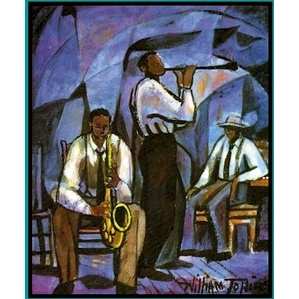
William Tolliver Jammin Limited Edition Stone Lithograph Artist Proof Signed - WTJAMMIN
Price: $2,900.00
Layaway with 3 pymts of $966.67





